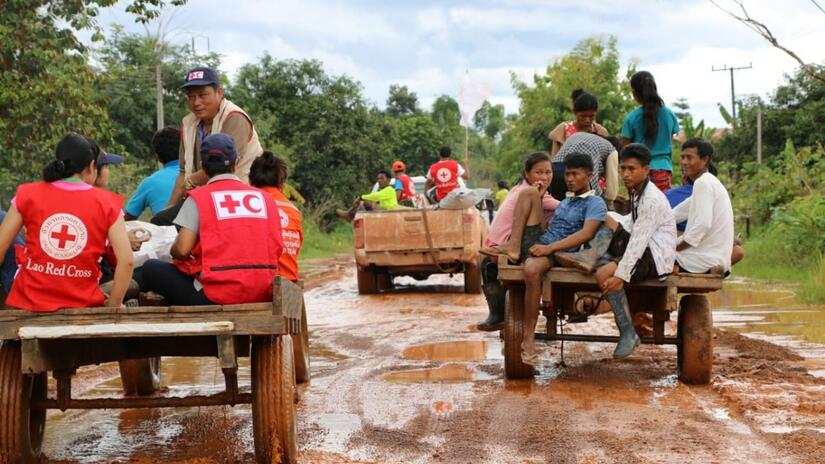The International Federation of Red Cross and Red Crescent Societies (IFRC) Disaster Law Programme works across the diverse and vast region that is Asia, from Afghanistan to Japan, Mongolia to Timor Leste, providing disaster law technical support, capacity building, peer learning and research in 21 countries for more than 15 years.
In Asia, the Disaster Law Programme focuses on countries with particularly high disaster risk and those who are actively developing or reviewing their disaster risk management legalisation. We have worked across Southeast Asia - Cambodia, Indonesia, Laos, Myanmar and the Philippines. We have worked extensively in Nepal following the 2015 earthquake, Mongolia, and recently in China, where a research report, International Disaster Response Law in China, has been under consideration by the Ministry of Emergency Management.
Given the differences and diversity of the region, the Disaster Law Programme’s approach in Asia is not ‘one size fits all’. This tailored approach applies to who the programme works with, adapting to work in partnership with governments, national disaster management offices, Red Cross Red Crescent Societies and with regional bodies like ASEAN.
The tailored approach also reflects the growing scope of the Disaster Law Programme and the needs of the countries– from response-based to underpinning all aspects of disaster risk management – risk reduction, preparedness for response and recovery, integration into resilience and also working to ensure community engagement in the disaster law process.
In Mongolia, IFRC and Mongolia Red Cross have worked with the Government to revise disaster protection law through a contemporary approach to disaster management, moving the country from a reactive response paradigm to one which is proactive and works to prevent and reduce the risk of disasters on people, livestock and the environment. Mongolia is now putting concerted efforts into ensuring these new frameworks are implemented and well understood, particularly at the community level through a national awareness campaign with support from Red Cross.
A common and important theme to our approach and outcome of the work in Asia is a shift to a more localised way of working, with disaster law processes and systems grounded in strong and nationally owned governance frameworks, and regional mechanisms. With countries like the Philippines, Indonesia and Japan who have immense experience responding to frequent and intense disasters and emergencies, huge knowledge and expertise already exist in within the region.
Effecting law and policy change requires a long-term investment and partnership. Having worked in the region for more than 15 years, we are now working with countries who are already in a position to review disaster management laws for a second time, following the learnings over time from large scale disasters and wanting to ensure that their governance frameworks are more responsive to current and emerging challenges like displacement, climate change and health hazards.
Fifteen years on from our early work in Asia after the huge tsunami to hit the region in 2004, we are again working regionally as we respond to the COVID-19 pandemic alongside National Societies, governments and communities to ensure all emergency preparedness and response efforts - whether it be for natural hazards, climate induced, or public health emergencies is underpinned by clear laws and regulations.
Article
Bringing disaster risk management to the people of Nepal
Bringing disaster risk management to the people of Nepal
| Article

